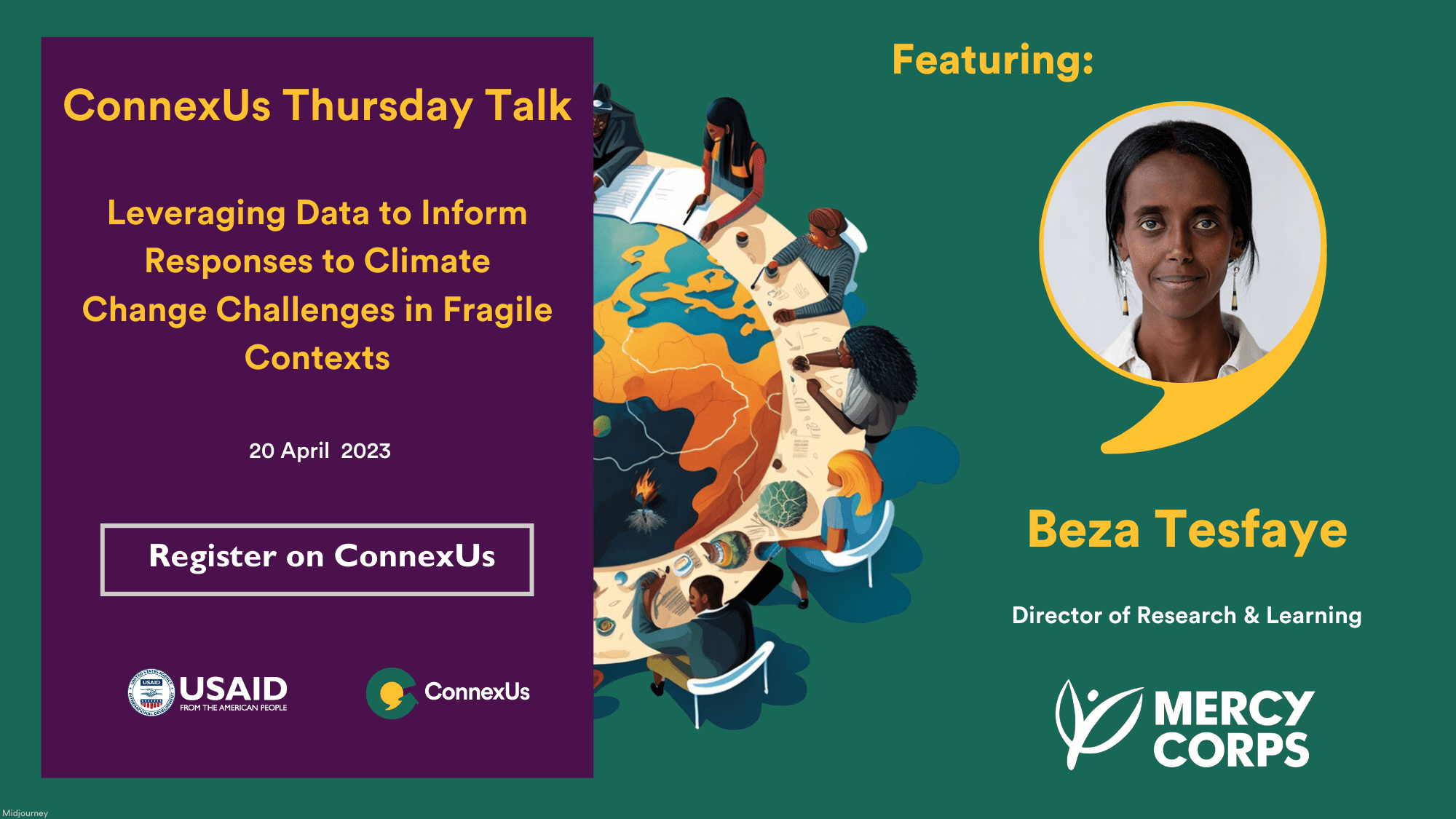This ConnexUs Thursday Talk explored how data, particularly quantitative secondary data, can be used to better design programs responding to climate-related challenges in fragile and conflict-affected countries. We were joined by Beza Tesfaye, Director of Research & Learning at Mercy Corps. The discussion drew on recent examples of research and pilot projects that identified opportunities to utilize data, including for anticipatory action in Guatemala and identifying the linkage between climate change and conflict in five sub-Saharan African countries.
Related Resources
- Addressing the climate-conflict nexus in fragile states; Lisa Jene (Mercy Corps) & Beza Tesfaye (Mercy Corps)
- Unlocking the potential of forecast-based remittances for anticipatory action by Beza Tesfaye and Ellen Reid
- Climate Security: Finding Shared Solutions to Shared Challenges
Speakers
Beza Tesfaye is Director of Research and Learning at Mercy Corps where she oversees research on climate-related migration and conflict. She also serves as a Non-resident Senior Associate for the Project on Fragility and Mobility at the Center for Strategic and International Studies (CSIS). Beza has 15 years of applied research experience on migration, conflict prevention, and governance. During her tenure at Mercy Corps, she has engaged frequently with policymakers within executive and legislative offices of the U.S. government to promote the use of research and evidence in international development policies and investments. She has published more than a dozen policy reports, based on primary research undertaken in Niger, Somalia, Afghanistan, Iraq, El Salvador, Kenya, Ethiopia and elsewhere. Her research has also appeared in peer-reviewed journals such as the American Journal of Political Science and African Identities and as well as media outlets, including the Washington Post and The New Humanitarian. Prior to Mercy Cops, she worked on international development, humanitarian, and human rights issues in the U.S. and internationally. Beza received a Master of Public Affairs and a Bachelor of Arts from Princeton University.
Dr. Daniel Abrahams is the Senior Climate Security Advisor in the Bureau for Conflict Prevention and Stabilization in the United States Agency for International Development (USAID). Daniel provides technical guidance for programmatic interventions as well as Agency and inter-Agency policy efforts. He holds a Ph.D. in Geography from the University of South Carolina and a Master’s in Public Policy from Johns Hopkins University. His research focused on the ways in which institutions approach the joint challenges of climate change, conflict, and disasters. He has conducted research in Uganda, Haiti, Kenya, Zambia, and the United States on topics ranging from the barriers to addressing climate-security risks with development policy to individual-level perceptions of flood risk. His work has been published in diverse academic outlets, including World Development, Climate & Development Conflict, Security & Development, and Current Climate Change Reports.

You must be logged in in order to leave a comment